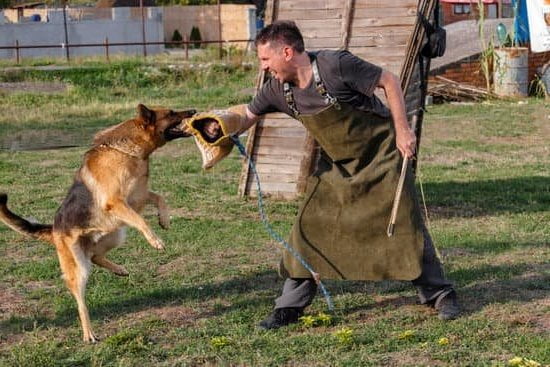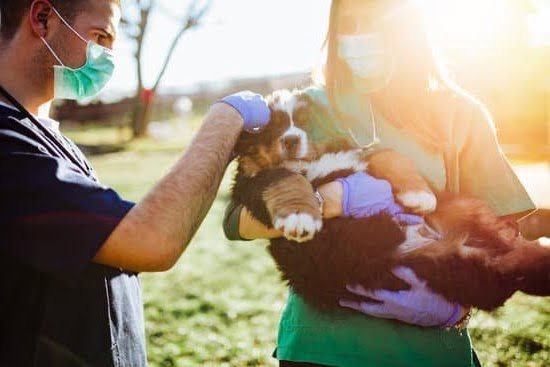There is no definitive answer to this question as crate training can be started at any age, depending on the dog’s temperament and willingness to be trained. However, puppies as young as eight weeks old can be crate trained with a little patience and perseverance.
The key to crate training any dog, regardless of age, is to make the experience a positive one. Crates should never be used as a form of punishment, but rather as a safe and comfortable place for dogs to rest and relax. When crate training a puppy, start by placing the crate in a central location in the home where the puppy can see and interact with family members. gradually begin to move the crate to a more secluded area, such as a bedroom or basement, as the puppy becomes more comfortable with it.
To get a puppy used to the crate, start by feeding the puppy in the crate and then gradually begin to close the door for short periods of time. always make sure the puppy has access to water and can easily exit the crate. As the puppy becomes more comfortable with the crate, start leaving the puppy in the crate for longer periods of time.
It is important to never leave a dog in a crate for more than a few hours at a time, as puppies and dogs need to exercise and eliminate regularly. When crate training an adult dog, start by placing the crate in a central location in the home and gradually move it to a more secluded area.
Like puppies, adult dogs should be fed in the crate and the door should be gradually closed for longer and longer periods of time. As with puppies, it is important to never leave an adult dog in a crate for more than a few hours at a time.
Crate training can be a valuable tool for house training dogs of all ages. When used correctly, crates can provide a safe and comfortable place for dogs to rest and relax.
Can You Potty Train A Dog Without A Crate
Potty training a dog without a crate is possible, but it will require a lot more time and effort on your part. The key to potty training a dog without a crate is to be vigilant in taking your dog outside to pee and poop, and to reward them for going potty in the right spot. You will also need to be prepared to clean up any accidents that occur in the house.
If you are potty training a puppy, you will need to take them outside to pee and poop every hour, day and night. Once they are older, you can gradually increase the amount of time between potty breaks. If you are consistent with taking your dog outside, they will eventually learn to pee and poop outside.
It is important to reward your dog for going potty in the right spot. You can give them a treat, or simply praise them. This will help reinforce the behavior and will encourage your dog to continue to go potty in the right spot.
If your dog has an accident in the house, be sure to clean it up immediately. This will help discourage your dog from peeing and pooping in the house.
If you are willing to put in the extra time and effort, you can potty train a dog without a crate. However, if you are short on time or patience, it may be better to use a crate to help potty train your dog.
Can You Train A Labrador To Be A Guard Dog
?
When it comes to choosing a guard dog, many people may think of a Rottweiler or German Shepherd. But what about a Labrador? Can you train a Labrador to be a guard dog?
The answer is yes, you can train a Labrador to be a guard dog. However, it is important to keep in mind that not all Labradors will make good guard dogs. Some Labradors may be too friendly and playful to make good guard dogs, while others may have the temperament and personality to make good guard dogs.
If you are considering training your Labrador to be a guard dog, there are a few things you can do to increase the chances of success. First, start with a Labrador that has a naturally protective temperament. Second, begin training your Labrador at a young age. And third, continue to train and reinforce the guard dog behaviors throughout your Labrador’s life.
If you are successful in training your Labrador to be a guard dog, he or she can be a valuable asset to your home and property. A Labrador guard dog can provide security and peace of mind, and may even deter potential intruders.
Can Any Dog Be Trained As A Service Dog
?
The answer to this question is a resounding YES! Any dog can be trained as a service dog with the proper training and support. There are many different types of service dogs that are trained to help people with a variety of disabilities, including autism, blindness, diabetes, and epilepsy.
So, how does one go about training their dog to become a service dog? The first step is to find a reputable service dog training organization that can provide you with the necessary training and support. There are many different types of service dog training organizations, so it is important to do your research and find one that is right for you and your dog.
The next step is to start training your dog. Service dog training is not easy, and it takes a lot of time and dedication. However, with the right training and support, any dog can be trained to become a service dog.
Can Wolves Be Trained Like Dogs
?
The short answer is yes, wolves can be trained like dogs, but there are some important distinctions to be aware of.
One of the key things to understand is that wolves are not domesticated animals like dogs are. Dogs were bred over thousands of years to be companions and work animals, while wolves have never been selectively bred in that way. This means that wolves are not as tolerant of humans and their presence, and they also have a much stronger prey drive than dogs.
For these reasons, training a wolf is a much more involved process than training a dog. It takes a lot of time and patience to build a relationship of trust with a wolf, and even then there is no guarantee that the wolf will obey.
However, if you are willing to put in the time and effort, there is no reason why you can’t train a wolf to be a loving and obedient pet. Just make sure you are aware of the challenges involved in working with these animals, and always use caution and common sense when dealing with them.

Welcome to the blog! I am a professional dog trainer and have been working with dogs for many years. In this blog, I will be discussing various topics related to dog training, including tips, tricks, and advice. I hope you find this information helpful and informative. Thanks for reading!





